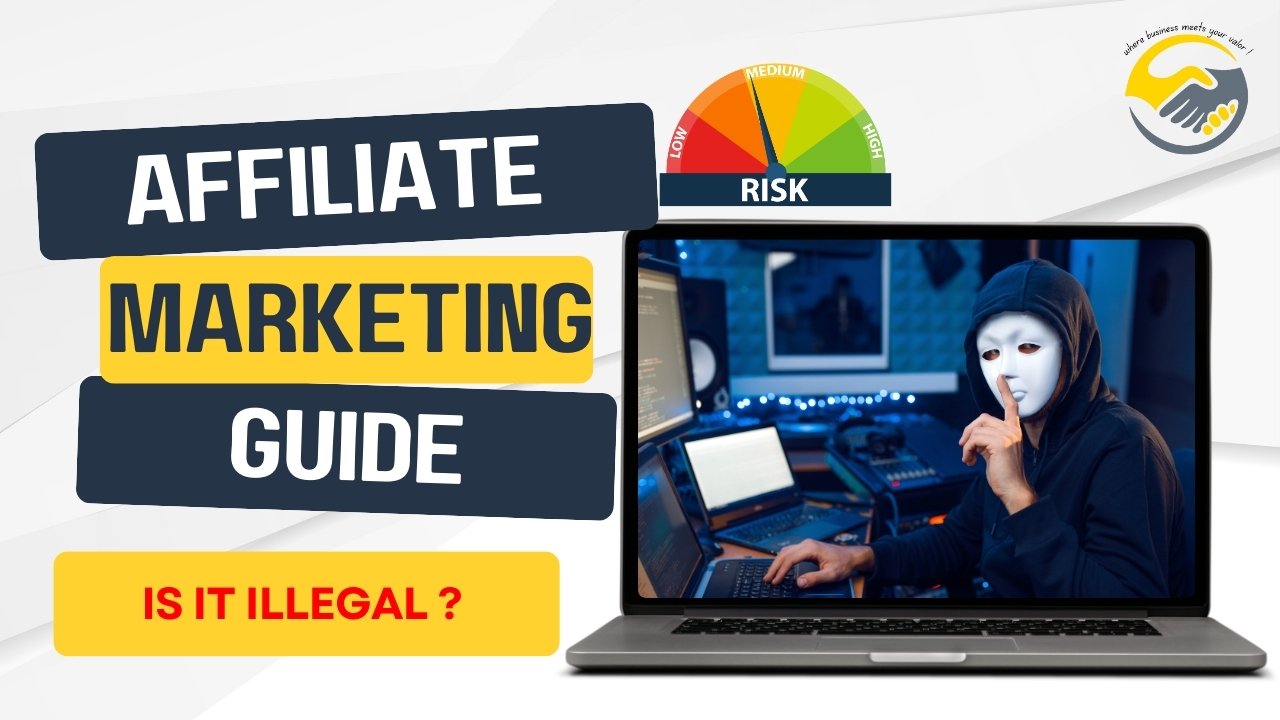The question “Is it illegal to do affiliate marketing?” often pops up for those exploring online income opportunities. Rest assured, affiliate marketing is a completely legitimate and widespread way to earn money online. This model involves partnering with businesses by promoting their products or services through unique affiliate links. You earn a commission for every click or purchase made through your link, effectively acting as a brand ambassador and driving sales for your partners.
Is Affiliate Marketing Legal & Legitimate?
One of the most common questions aspiring online entrepreneurs have is whether affiliate marketing is legal. The short answer is a resounding yes! Affiliate marketing is a completely legal and widely accepted business practice. It’s based on transparent partnerships where you promote products or services you believe in, and you earn a commission for each successful referral. Think of it as a win-win situation: you’re helping businesses reach a wider audience, and you’re earning income for doing so. But beyond just being legal, affiliate marketing is also ethical and reputable.
Is Affiliate Marketing a Legal Way to Earn Money?
Absolutely! Affiliate marketing is a legitimate and legal way to earn income online. It’s a mutually beneficial partnership between businesses and individuals. Businesses get access to a broader audience through the promotion of their products or services, while individuals can earn commissions for driving traffic and sales. This is a completely transparent and established business model that benefits everyone involved.
Here are some key points to understand why affiliate marketing is legal and ethical:
- Transparency: Affiliate marketers are required to disclose their affiliate relationships. This ensures consumers know they are being directed to a product or service through a link that may earn the marketer a commission.
- Legitimate Partnerships: Affiliate marketing is built on partnerships between businesses and individuals. Both parties agree to the terms of the partnership, which includes the commission structure and the methods of promoting the product or service.
- Legal Compliance: Reputable affiliate programs operate within the boundaries of legal regulations. This includes adhering to consumer protection laws, privacy policies, and any other relevant legal frameworks.
The Truth About Affiliate Marketing and Its Legalities

Let’s dive deeper into the heart of the matter. Affiliate marketing, in its purest form, is a mutually beneficial partnership between businesses and individuals. Businesses gain access to a wider audience through the promotion of their products and services. Individuals, in turn, earn a commission for each successful referral. This process is transparent, ethical, and, crucially, legal. The key to legitimacy lies in complete disclosure.
Here’s the crucial point:
- Disclose your affiliate relationships clearly. This ensures transparency and builds trust with your audience.
- Promote products or services that align with your values and expertise. Honesty and authenticity are paramount in affiliate marketing.
- Avoid deceptive practices such as hiding affiliate links or using misleading tactics.
By adhering to these principles, you can engage in affiliate marketing with confidence, knowing that you’re operating within ethical and legal boundaries.
| Key Principle | Description |
|---|---|
| Disclosure | Clearly disclose your affiliate relationships to ensure transparency and build trust with your audience. |
| Alignment | Promote products or services that align with your values and expertise. Honesty and authenticity are paramount. |
| Avoid Deceptive Practices | Refrain from hiding affiliate links or using misleading tactics. |
Affiliate Marketing: Myth Busting the “Illegal” Label
One common misconception surrounding affiliate marketing is the perception that it’s somehow shady or unethical. This couldn’t be further from the truth. Affiliate marketing thrives on transparency and building trust.

Imagine it as a partnership: businesses trust you to promote their products authentically, and you trust them to provide quality products and services. When you recommend products through affiliate links, you’re essentially saying, “Hey, I use this and it’s great! I think you’d like it too.” This approach benefits everyone involved – the business gets more exposure, you get to share valuable products, and your audience gains access to new possibilities.
Conclusion
In conclusion, “Is it illegal to do affiliate marketing?” is a question that often arises when exploring online income opportunities. The answer is a resounding no. Affiliate marketing is a legitimate, ethical, and widely accepted business practice. It’s based on transparent partnerships where you promote products or services you believe in, earning a commission for each successful referral. Think of it as a win-win situation: you’re helping businesses reach a wider audience, and you’re earning income for doing so.
Remember, the key to successful and ethical affiliate marketing lies in complete transparency, honesty, and authentic promotion. By disclosing your affiliate relationships clearly and promoting products that align with your values and expertise, you can confidently participate in this lucrative and rewarding online business model.
Is it illegal to do affiliate marketing? Quick FAQ
How do I know if an affiliate program is legitimate?
Look for established programs with reputable businesses and a clear commission structure. Trust your gut – if something seems too good to be true, it probably is. Do your research, read reviews, and focus on promoting products or services you genuinely believe in.
What are some common affiliate marketing scams to watch out for?
Be wary of “get rich quick” schemes that promise unrealistic returns. Legitimate affiliate marketing takes time, effort, and building an audience. Steer clear of programs that pressure you into aggressive sales tactics or require upfront fees.
Is it mandatory to disclose affiliate relationships?
Absolutely! It’s essential for transparency and ethical conduct. Disclose your affiliate relationships clearly and prominently, whether it’s in your blog posts, social media content, or website’s “About” page. Building trust with your audience is paramount for long-term success in affiliate marketing.
Further Reading: Is There a Downside to Affiliate Marketing? The Truth You Need to Know in 2024
Further Reading: Uncovering the Truth About Affiliate Marketing: A Path to Wealth or an Illusion?
Related Posts
- Can You Make Money First Day with Affiliate Marketing? 3 Tips & Realistic Expectations
- How to Start Affiliate Marketing With No Money: A Complete 2024 Guide
- Can I Lose Money with Affiliate Marketing? The Efficient Strategy to Avoid It in 2024
- Is There a Downside to Affiliate Marketing? The Truth You Need to Know in 2024







